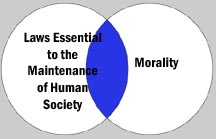This is a follow up to “Touching Innocence,” below. A blogger named Russell Roberts writes,
Proponents of single-payer health care reform in the United States have long pointed toward Canada as a model for the US to emulate.
The New York Times reports that the Canadian system is imploding. …
You already know where this is going … the Times report discusses problems with the Canadian system, and says some private health care is rushing in to pick up the slack. Whereupon blogger Russell gloats a bit about how superior the U.S. health care system is, and how fortunate Canadians will be when their public system breaks down entirely and they can have a health care system just like ours.
Russell goes off track with the first sentence — “Proponents of single-payer health care reform in the United States have long pointed toward Canada as a model for the US to emulate.” Although I’ve met such people, in fact the Canadian Model is a bugaboo of the Right. Try to discuss national health care with a rightie, and the first sentence out of his mouth will be, “You mean like in Canada?” Then he will go off on a tirade about the problems with the Canadian system. (Unless you remind them of the underfunded British system, which is the other good “bad” example of a system with problems.)
And, I’m sorry to say, I also run into uninformed lefties who seem to think our only choices are a Canadian-style single-payer or the overblown mess that is the U.S. “system.”
As I wrote earlier today, just about every nation on earth affluent enough for most citizens to own a microwave has some kind of national health care system, with the exception of the United States. And every nation has worked out its own system; it is not true, as the uninformed would have it, that there is only the Canadian Model or ours. People who have looked at the myriad systems on the planet say that Canada’s is not necessarily the model we should be emulating. Other countries (notably France, whose system is ranked #1 in overall performance by the World Health Organization) have mixed public and private systems, with public “universal coverage” supplemented by private insurers and hospitals for those who want to pay for them. This may be where Canada is heading now.
Ezra Klein wrote a series of posts on the health care systems of various other countries. France’s system, he says, is not only more cost-effective than ours, it also provides better care for most people.
France’s health care system bodyslams us on most every metric. Beyond the beds per 1,000 stat mentioned above, France has more doctors per 1,000 people (3.3 vs. 2.4), spends way less, has 3.2 more physician visits per capita (6 in France vs. 2.8 in America, which probably accounts for the better preventive care in France), has a much higher hospital admission rate, and beats us handily on the most important measure: potential years of life lost. American women lose 3,836 years per 100,000, while American men give up 6,648 in the same sample size (yes, we get screwed). In France, the comparable numbers are 2,588 years for the women and 5,610 for the men. Still not great, but quite a bit better.
So France spends less, gets more, and does so through a public-private hybrid that’s heavily, heavily public.
Also,
The hospitals offer about 8.4 beds per 1,000 people (America, btw, offers 3.6. Ouch.) The public sector provides 65% of the beds, private hospitals — which operate on a fee-for-service basis — make up the rest, and primarily concentrate on surgeries. French citizens choose which one to go to and get the same reimbursement at either. How’s that for choice? Not good enough? The French also get to choose their physicians, their physicians get to choose where they practice, and there’s patient-client confidentiality.
Everyone I’ve ever met who’s lived in France even a short time sings the praises of the French health-care system. This is not to say that Americans with lots of money or top-notch insurance don’t get as good, or better, care. But, I’m told, if you don’t have lots of money or insurance, try to arrange to have your health problems in France.
The Canadian health care system is slowly breaking down, The New York Times says. The U.S. system, by contrast, is not slowly breaking down. Parts of it are already broken, and what’s left of it is hurtling toward disaster at breakneck speed.
Once again, Jane Bryant Quinn:
America’s health-care “system” looks more like a lottery every year. The winners: the healthy and well insured, with good corporate coverage or Medicare. When they’re ill, they get—as the cliche goes—”the best health care in the world.” The losers: those who rely on shrinking public insurance, such as Medicaid (nearly 45 million of us), or go uninsured (46 million and rising).
To slip from the winners’ circle into the losers’ ranks is a cultural, emotional and financial shock. You discover a world of patchy, minimal health care that feels almost Third World. The uninsured get less primary or preventive care, find it hard to see cardiologists, surgeons and other specialists (waiting times can run up to a year), receive treatment in emergencies, but are more apt to die from chronic or other illnesses than people who pay. That’s your lot if you lose your corporate job and can’t afford a health policy of your own.
Here Sebastian Mallaby explains why Bush’s health savings accounts will make our system even worse. In another column, Mallaby concludes,
Beyond the imperative of restraining prices, the biggest challenges in health care are to get insurance to everyone and to create incentives for preventive treatment — even though prevention may pay off 30 years later, by which time the patient will have gone through multiple switches in health plans. The most plausible subsidizer of universal insurance is government, and the only entity with a stake in lifelong wellness is the government. Is the administration ready to see that?
See also “Single-Payer Health Would Increase US Competitiveness” by Hale Stewart at BOP News.
This is a huge topic, and this evening I don’t have the time to go into the detail the topic requires. But whenever I see a rightie snicker about the problems of other health care systems, I wonder what it’s going to take to get them to see that our system is a disaster in progress. Corpses in the streets? Oh, wait, we’ve been there already. I’m afraid it’s what Quinn says — the shock of being dumped out of the “winners” rank. Until then, it’ll take major surgery to get their heads out of their butts.


 The realm of morality, however, is separate from the realm of legality. There are all manner of things that we might consider immoral that are not, in fact, illegal; adultery is a good example. Such acts may have harmful personal consequences, but regulating them isn’t necessary to civilization. And I don’t see what’s immoral about, say, misjudging how many coins you should put in the parking meter. That’s why I tend to see the legal versus moral question on a Venn diagram. The diagram here isn’t entirely accurate since the blue area should be bigger — law and morality intersect more often than they don’t. I’m just saying that answering the moral question of abortion (assuming we ever will) does not tell us whether an act should be legal or not. In fact, since abortion is legal (with varying restrictions) in most democratic nations today with no discernible damage to civilization itself, I’d say the abortion question falls outside the blue area of the diagram.
The realm of morality, however, is separate from the realm of legality. There are all manner of things that we might consider immoral that are not, in fact, illegal; adultery is a good example. Such acts may have harmful personal consequences, but regulating them isn’t necessary to civilization. And I don’t see what’s immoral about, say, misjudging how many coins you should put in the parking meter. That’s why I tend to see the legal versus moral question on a Venn diagram. The diagram here isn’t entirely accurate since the blue area should be bigger — law and morality intersect more often than they don’t. I’m just saying that answering the moral question of abortion (assuming we ever will) does not tell us whether an act should be legal or not. In fact, since abortion is legal (with varying restrictions) in most democratic nations today with no discernible damage to civilization itself, I’d say the abortion question falls outside the blue area of the diagram.